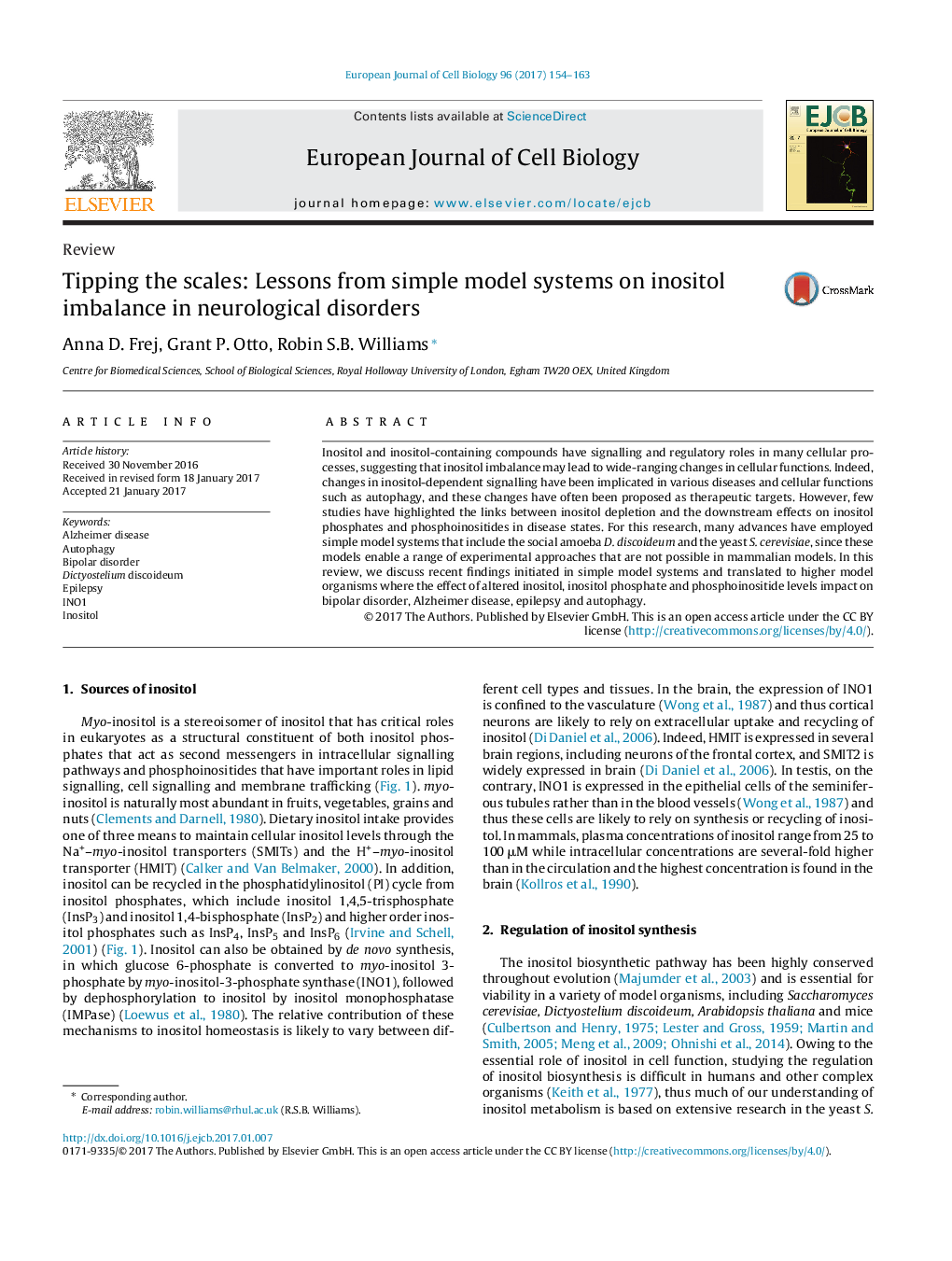| Article ID | Journal | Published Year | Pages | File Type |
|---|---|---|---|---|
| 5532254 | European Journal of Cell Biology | 2017 | 10 Pages |
Inositol and inositol-containing compounds have signalling and regulatory roles in many cellular processes, suggesting that inositol imbalance may lead to wide-ranging changes in cellular functions. Indeed, changes in inositol-dependent signalling have been implicated in various diseases and cellular functions such as autophagy, and these changes have often been proposed as therapeutic targets. However, few studies have highlighted the links between inositol depletion and the downstream effects on inositol phosphates and phosphoinositides in disease states. For this research, many advances have employed simple model systems that include the social amoeba D. discoideum and the yeast S. cerevisiae, since these models enable a range of experimental approaches that are not possible in mammalian models. In this review, we discuss recent findings initiated in simple model systems and translated to higher model organisms where the effect of altered inositol, inositol phosphate and phosphoinositide levels impact on bipolar disorder, Alzheimer disease, epilepsy and autophagy.
Graphical abstractDownload high-res image (134KB)Download full-size image
